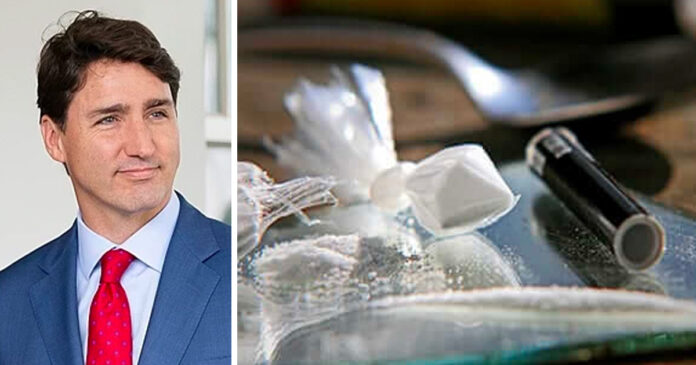As James Topp prepares to meet with MPs in Ottawa on Jun. 22, the Canadian Armed Forces (CAF) veteran tells True North it’s been made clear to him that the federal government and the legacy media are a big part of what has divided Canada.
“There’s this serious problem in the nation right now with the division that’s been produced over the past two years,” he said. “We’re going to come together with a number of organizations and hopefully work together with Members of Parliament to try to do something to fix that.”
Speaking from Marathon, Ontario this week on day 100 of his protest march, the 28-year career soldier said his discussions with Canadians along the way have confirmed there’s something very wrong with the way the country is being run.
“The perspective that I’ve gained on this journey is that the Canadian spirit is ever present,” he said. “However, there’s intense dissatisfaction with the present government. I’ve talked to other folks as I go along, and we came to the conclusion that this has been going on for a number of years in this country and that there’s too much power concentrated in too few hands.”
Topp said that his 4293 km march has been essentially ignored by the legacy media despite the many thousands of Canadians who have come to support it.
“What we’re finding is pretty much a total corporate media blackout on this endeavour,” he said. “To that end, I would say, you know, folks who want to go out there and start banging the drum and shaming the CBC or CTV, because this is an amazing story of – 100 days in – a group of people who had never met each other before February 20.”
Topp began his march opposing government vaccine mandates on Feb. 20 in Vancouver – the same day the Trudeau government completed its crackdown on Freedom Convoy protesters in Ottawa after invoking the Emergencies Act one week earlier.
As a civilian employee with the RCMP and having moved from the regular forces into the reserves, Topp himself lost two jobs to the federal vaccine requirement. Speaking to True North before his march, he credited truckers and working Canadians who pushed back against the mandates with recovering his sense of purpose.
From the beginning of his march, Topp has been encouraging supporters to write to Members of Parliament to request they meet with him when he comes to Ottawa on June 22. Social media postings show thousands of letters have already been mailed.
Topp confirmed to True North that he has already spoken with 10 MPs and that not all of them are Conservatives. He said he is in the final stages of securing a venue for their discussions but wished to keep the location private due to the way protests such as his have been treated by the legacy media.
The items on the meeting’s agenda include what Topp referred to as the 3+1 R’s – 1. Repeal 2. Reinstatement 3. Restitution + Repair.
While Topp called his march a success in terms of raising awareness and gaining the attention of MPs, he said the future of his mission would be determined by the outcomes of his talks.
In the meantime, he thanked all the people who continued to support him – including the team who ran Canadamarches.ca behind the scenes as well as all those who encouraged him along the way.
“I don’t have the words to express the gratitude,” Topp said. “There’ve been times when you’re struggling on the road and the weather is not that great and then somebody will pull over out of the blue – even here in this part of Ontario where towns are few and far between.”
“Somebody always comes up and says, ‘thank you for what you’re doing.’ It’s just – it’s hard to put into words. I’ve never been in a situation like this, and I’m just so – it’s overwhelming.”
Canada Marches: Agenda Items Ottawa Meeting for 22 June 2022 by True North on Scribd


























